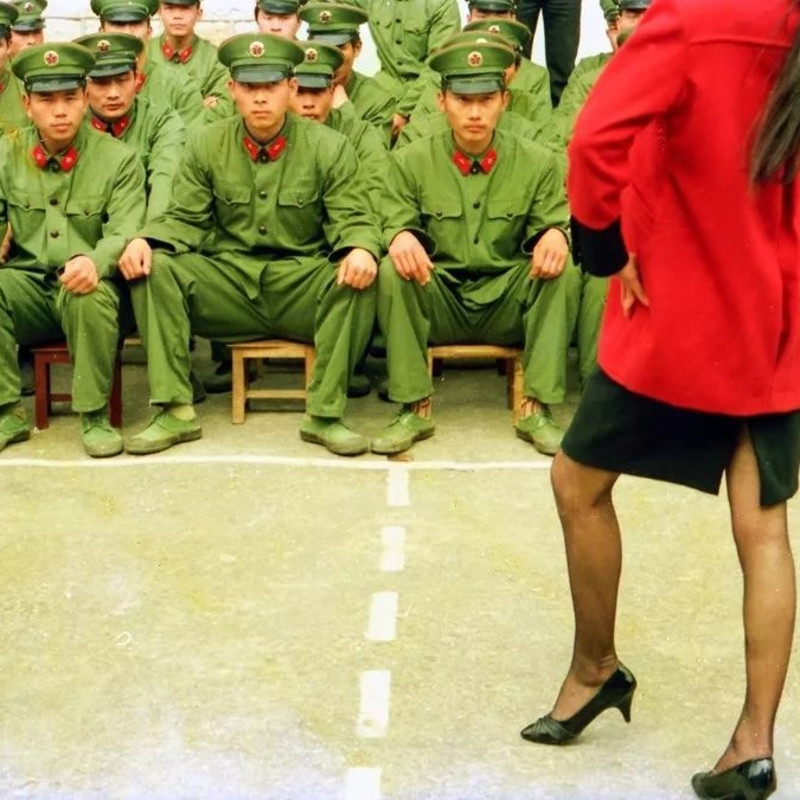Host:ThreeShadows Photography Art Center, Xiamen
Curator: Zhong Linchun
Opening Ceremony: 28thApril, 2018, 15:00
Address: Three Shadows PhotographyArt Center, Xiamen (301, Building No.2, Xinlinwan Yinyun Center, JimeiDistrict, Xiamen)
Opening hours: 9:30 to 17:30 Closed on Mondays.
Speaking of the photography in 1980s Xiamen, I was initially impressedby the “five-ones” in Xiamen. At that time, they tried many ways to photograph.Later on, according to my limited knowledge, Mr. WANG Jialu becomes one of the documentaryphotographers that keep shooting the daily scenes in Xiamen.
In 1986 WANG Jialu started to photograph consciously. He has focusedon people more often from the very beginning. His daughter was only 3 years’old at that time. While watching her growth and changes, he took lots of photosfor her. We can say that his photography begins at taking pictures for hisfamily. Then he turned his camera lens to Xiamen, where he lived. He cherishedthe city itself and the people that he met there. He said, he took photos by predestination.Family, friends, colleagues, teams at work and even homeless men were allphotographed equally by him for ten years. He gradually stopped after 1996. Atthat time, he had already more than 60,000 films. This is of course a very hugeamount. Looking back at these photos, due to his identity, skills, naturalinstincts, profession and large social connections, WANG Jialu made anextremely rich record of that time. The photos he took by instinct have graspedthe essence of the era.
We can see that the people in his photos are sometimes far andsometimes near. He wandered in this city, walked through different crowdsswiftly, sometimes gentle, but sometimes with a little preference. He saweverything freely and recorded them as if his hand was like a shutter. He said,he wanted to record things and people honestly and warmly. If possible, hewanted to autotype the times and the history of a city by photos. His long-timeobservation and records of the daily life in this city are doubtlessly not verycommon. These photos are definitely precious records of the development inXiamen, a special economic zone. This is a great contribution to Xiamen. Hisobservation of people accomplished his photography and made a lively culturalvalue, which is different from other local film archives.
WANGLujia used photography to get along with this city. He said, if he didn’t takephotos of these things, they were gone forever, what a pity! He went to streetsand buildings to take photos. Then it became his way of living. If he didn’t takephotos, he felt uncomfortable. I classified his photography into City Album, just like what AN Ge did forGuangzhou, YONG He for Shanghai, Josef Sudek for Prague and VivianMaier for Chicago. A photographer needs to be enthusiastic, curious, calm and concentratedto treat a city and the people there for a really long time, just like doing areligious daily lesson.
Man may not have unusual feelings when watching these photos,because they can be photographed everywhere. However, time flies and things aregone forever without coming back. They can only exist if photos are made forthem. With the power of time, they become special after 20 or 30 years. The uncommonthing is not the time itself, but the spirit of people. This brilliant sprit ofone generation can be felt especially from the group photos and individualportraits in the inner hall.
WANG Lujia said, he took many photos in foreign countriesas well. But when he made comparison of these photos, the ones he took in thiscity were more impressive. It’s a kind of nostalgia, deeply connected to breathand blood. He viewed these photos modestly as both the evidence of developmentand the way of looking back the history in this city. It’s a kind act from aphotographer, if we re-think it now.
By organizing this City Album Exhibition, Three Shadows also wishes to present a very small gift in form ofphotography to Xiamen.
By Zhong Linchun(Curator)





